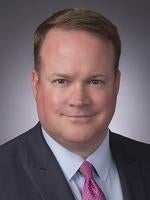On March 1, 2019, the National Labor Relations Board (“Board”), in a 3-1 decision, ruled that Beck objectors cannot be required to financially support the lobbying efforts of unions because lobbying costs are not chargeable as incurred during a union’s performance of statutory duties as the objectors’ exclusive bargaining agent. United Nurses & Allied Professionals (Kent Hospital), 367 NLRB No. 94 (2019). This decision comes six years after the Board’s first ruling in this case—a ruling in which the Board found that lobbying expenses can be chargeable to Beck objectors under certain circumstances (which was later vacated by the Supreme Court’s 2014 Noel Canning decision)—and represents the Board’s most recent effort to closely scrutinize the dues charged by unions: recall, for example, the Board’s decision in Teamsters Local 75 (Schreiber Foods), 365 NLRB No. 48 (2017), in which the Board held that Teamsters Local 75 violated the National Labor Relations Act (“Act”) for failing to provide sufficient information to Beck objectors regarding how it calculated the chargeability and non-chargeability of its own dues expenditures, as well as sufficient information about how it determined the chargeability and non-chargeability of the per capita dues paid to affiliated entities.
By way of background, the term “Beck objector” was coined after the Supreme Court’s 1988 ruling in Communications Workers of America v. Beck, in which the Court held that a union cannot use agency fees collected from a non-member employee—that is, an employee subject to a union security clause but who chooses not to be represented by the union—on activities unrelated to collective bargaining, contract administration, or grievance adjustment if the non-member employee objects to such an expenditure.
In United Nurses and Allied Professionals (Kent Hospital), the Board held that lobbying costs cannBeckot be chargeable to Beck objectors under the Act, and that the United Nurses and Allied Professionals union (“UNAP”) violated its duty of representation under Section 8(b)(1)(A) of the Act by charging Beck objectors for money spent on lobbying efforts. Unlike the case-by-case approach advocated by dissenting Member McFerran, the Board categorically held that lobby expenditures are not direct representative functions, regardless of the topic of the proposed legislation. The Board also held that “basic considerations of fairness” require unions to take the “modest additional step” of providing Beck objectors with an audit verification letter that confirms that the financial information provided to Beck objectors regarding the union’s fee calculation was independently verified so that Beck objectors can decide whether to challenge the union’s fee calculations. Although Member McFerran agreed with the Board majority that Beck objectors should receive audit verification letters under basic considerations of fairness, she nonetheless criticized the majority’s decision to apply this newly announced standard retroactively to UNAP when the requirement had never been required—nor even suggested—previously by the Board.
Although the financial impact this decision may cause unions remains to be seen, it is likely to result in an uptick of unfair labor practice charges filed against unions by Beck objectors for violating the duty of fair representation. More broadly, this decision is the latest example of the current Board’s shift towards clear-cut rules that privilege administrative ease and certainty over fact-based adjudication that oftentimes results in opaque guidelines for employers and unions alike.




 />i
/>i
